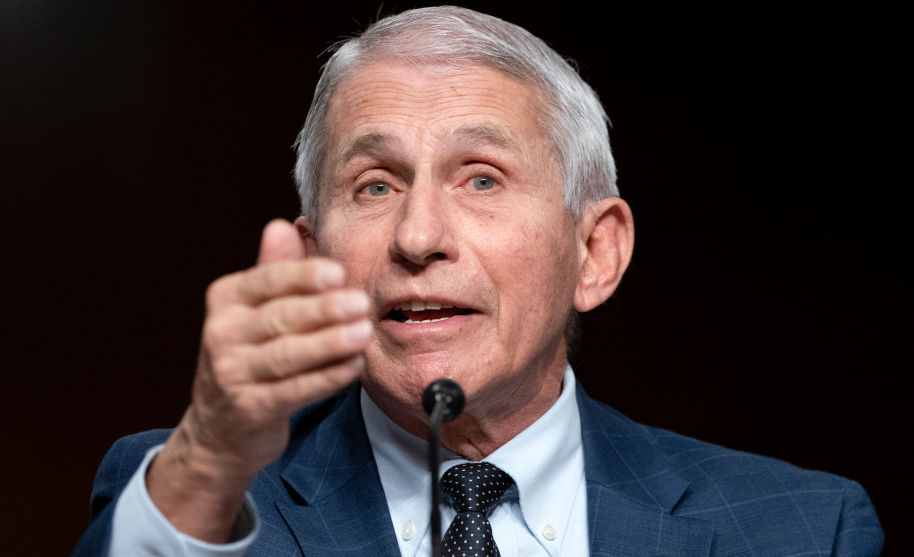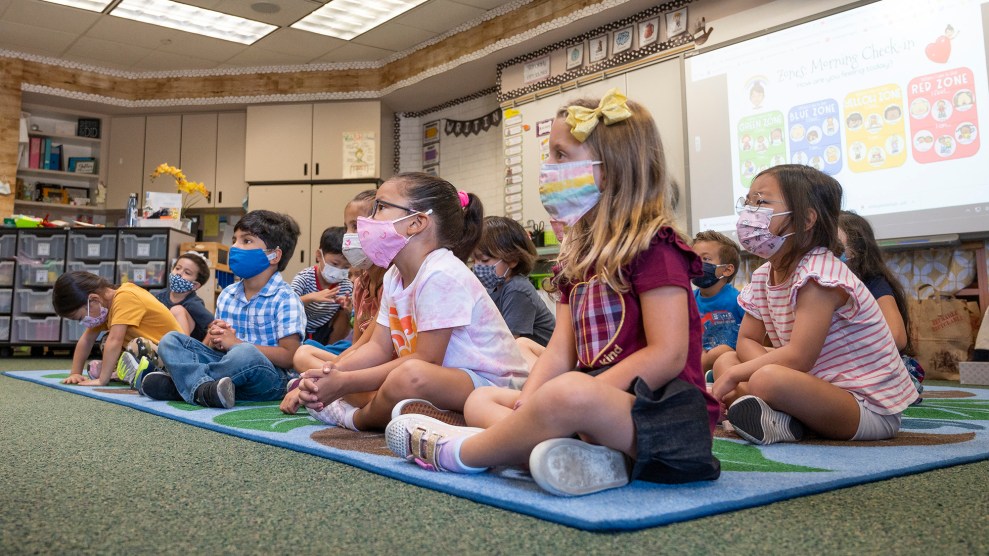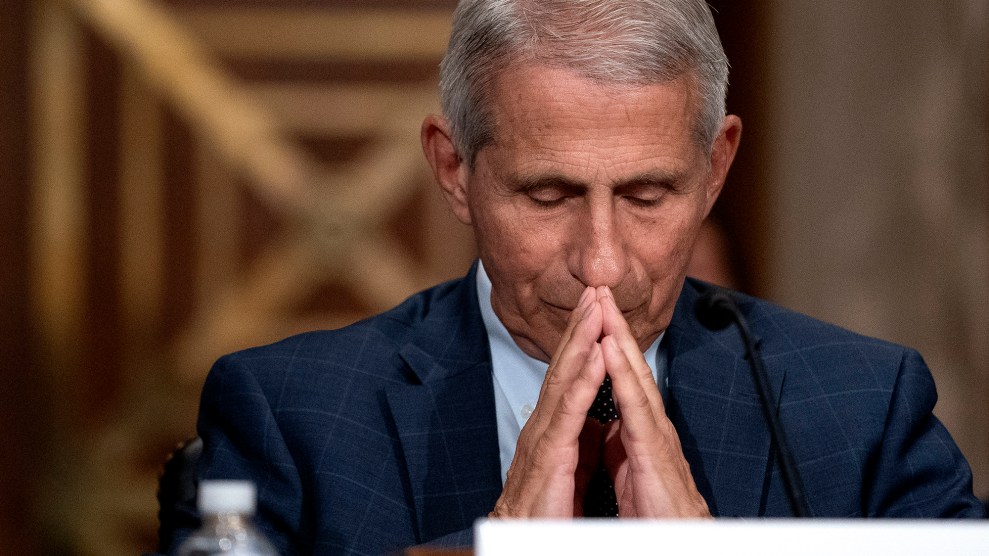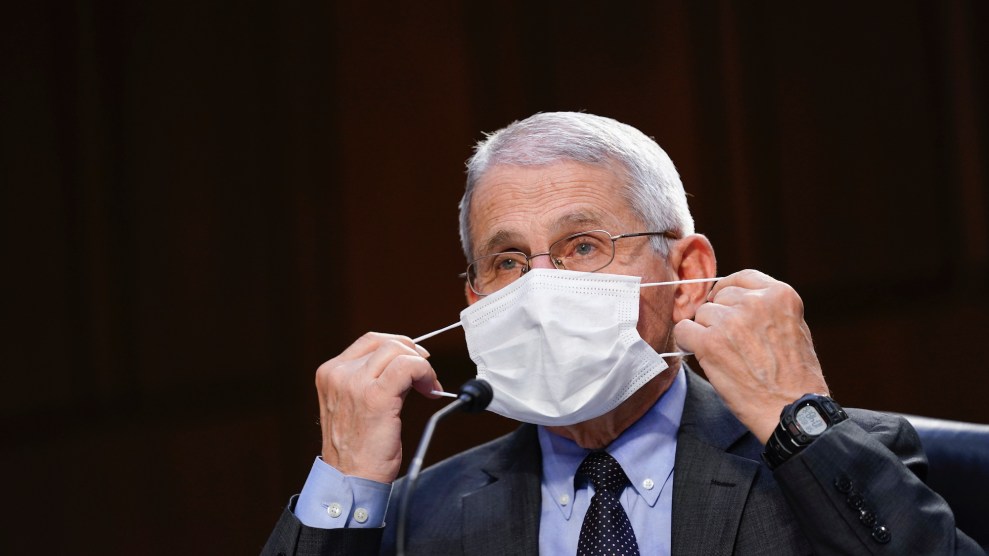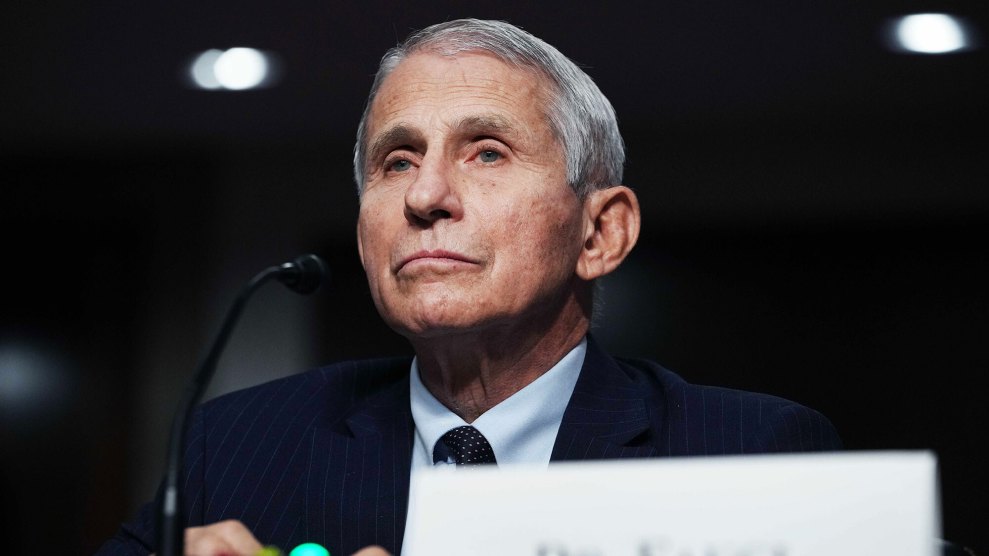
Tom Williams/ZUMA
After 38 years, Dr. Anthony Fauci just announced that he will step down at the end of the year from his position as director of the National Institute of Allergy and Infectious Diseases (NIAID).
“I will be leaving these positions in December of this year to pursue the next chapter of my career,” said Fauci in a statement. Since the administration of Ronald Reagan, Fauci has served as the country’s top infectious disease expert.
Before Covid, Fauci was most famous for his handling of HIV/AIDS. As the crisis began, he was harshly critiqued for not adequately marshaling the powers of the federal government to combat the disease under Reagan. ACT UP founder Larry Kramer wrote in 1988 that Fauci’s inaction made him a “murderer.” Since then, Fauci was won back over some activists by chipping away at HIV/AIDS. Peter Staley—who worked alongside Kramer with ACT UP—told us in an interview Fauci was “one of the great heroes in the fight against HIV/AIDS.”
In 2020, Fauci emerged as a national figure in the fight against Covid. He became a celebrity of sorts. Often, he could be found on TV informing Americans about the growth of the disease and the best personal steps (masks, social distancing, washing your hands) to stop the spread. In private, Fauci pushed for a rapid development of vaccines. But his advice clashed with then President Donald Trump’s on key issues, too.
Mother Jones has a complete timeline of Trump’s mishandling of the pandemic, including the former president’s retweeting of the hashtag #FireFauci.
Over the past two years, Fauci has become a punching bag for the right as well—an avatar of the government encouraging people to change their behavior to try to stop the spread of Covid. He has also been criticized from the left for his lack of action, especially during the Biden administration.
In his statement, Fauci says that in the next coming months he will continue to dedicate his “full effort, passion and commitment” into his current responsibilities, as well as helping the NIAID prepare for the transition in leadership.
“Thanks to the power of science and investments in research and innovation, the world has been able to fight deadly diseases and help save lives around the globe. I am proud to have been part of this important work and look forward to helping to continue to do so in the future.”


